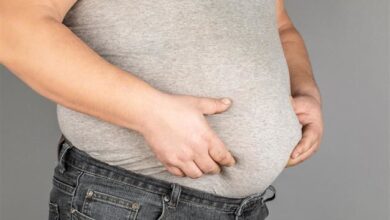Women’s Calcium Deficiency: 5 Symptoms To Look Out For, From Brittle Nails To Muscle Cramps
One essential mineral is calcium. It helps your body create strong teeth and bones. Compared to men, women should start taking more calcium in their diets around middle age. This is due to the fact that women go through menopause, which makes calcium vital for them. Women’s calcium consumption becomes critical throughout menopause in order to lower their risk of osteoporosis and calcium deficiency illness, or hypocalcemia. Research found that those who are vegan, vegetarian, or post-menopausal, as well as those who are intolerant to dairy, are more vulnerable.

The majority of women who are deficient in calcium are not aware of it. Nonetheless, a number of common symptoms might point to this illness. The five signs of calcium shortage that may harm women’s health and wellbeing are listed below.
WOMEN’S CALCIUM DEFICIENCY SIGNS AND SYMPTOMS
Do your nails break or split easily? If so, you may have brittle nails. A calcium deficit is one of the several deficiencies that may be indicated by brittle nails. Low calcium levels may make nails fragile and more vulnerable to breakage. Calcium is vital for healthy nails.
Muscle spasms: Calcium is necessary for both the contraction and relaxation of muscles. Constant twitching, cramping, and spasms of the muscles might result from a deficit. These unpleasant and inconvenient spasms may happen in different muscle groups.
Toothache: Your body has 99% calcium, which is kept in your teeth and bones. It seems logical that you would be more susceptible to tooth decay and pain if your calcium levels fell. Additionally, there’s a higher chance that you’ll get periodontal disease.
Premenstrual Cramps: Women who are deficient in calcium have severe discomfort throughout their menstrual cycles. Studies suggest that hypocalcemia might be a factor in severe PMS symptoms. Supplements containing calcium may also help manage the symptoms.
Fatigue: Even after a restful night’s sleep, feeling too depressed and exhausted may indicate a calcium deficit. Low calcium levels might cause sensations of exhaustion and sluggishness since they are important in the metabolism of energy.







